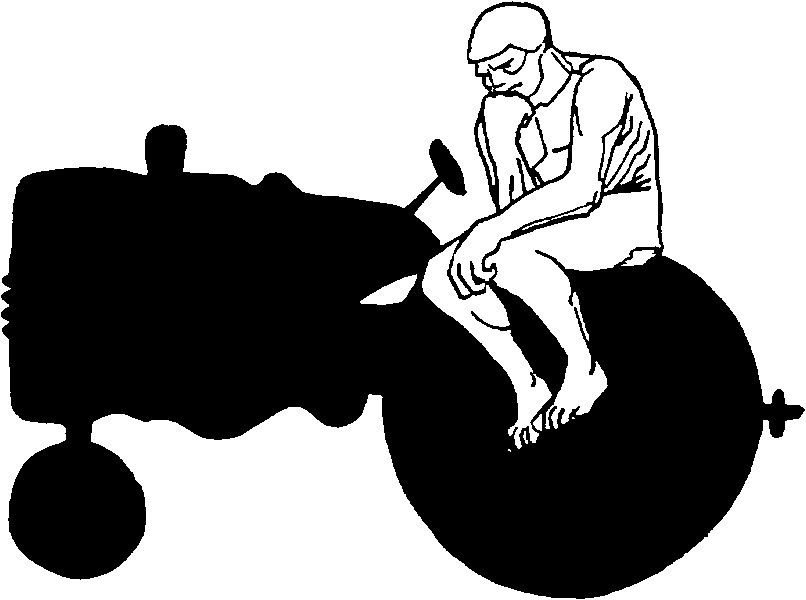27th Great American Think-Off
Announcing Honorable Mentions
Read Essays Below
Read the 2019 Honorable Mention Essays Below, OR you can:
2019 Think-Off Finalist Essays
Michael Denny, Journalist from Staples, MN
No
Voting does not matter. It hasn’t mattered for quite some time. Gone are the days of civic engagement when American citizens left their homes and jobs in droves to cast that very important vote. Voting in the current political climate is pointless. Voting died when statesmanship died.
Politicians big and small are bought and paid for. From the small town mayor to the President of the United States, corporate influence has hijacked every office in the land. Bankers, oil tycoons, CEO’s, and the military industrial complex decide who is President, not the ordinary citizen.
There was a time when the United States relied on the mindful leadership of the selfless and brave. Men that rose to the top through raw intelligence, strength of conviction, and a desire to lead. That time tested model has been replaced with corporate puppeteering. Money and external interest determines who will lead.
Great men and women exist across our vast nation. There are dozens of smart and gifted people that could create a utopia which would be the envy of the entire world. A country that exists for everyone not just the interests of the overly privileged one percent.
External forces overtly determine the outcome of every major election. They fund the candidates that align with their interests, and their interests alone. No regular person could ever compete with a multi-million dollar corporately funded political beast . Low voter turnout has been blamed on individualism and blatant laziness, that may be true to some extent but I believe it can be attributed to the masses waking to the destruction of the political system. Why participate in a system that doesn’t care? Why worry about voting when those who should lead get ousted in favor of the demagogue or corporate shill.
Voting feels good. It’s a rush of civic pride, it feels like an individual has some semblance of power. That power is an illusion.
Restoring our democracy requires widespread reform and political upheaval. Greed has to be removed from the political machine. Corporate money has to be banned. The platform for leadership has to be more inclusive. As it stands, every name on the ballot has been carefully selected and the victories have been statistically decided.
~~~
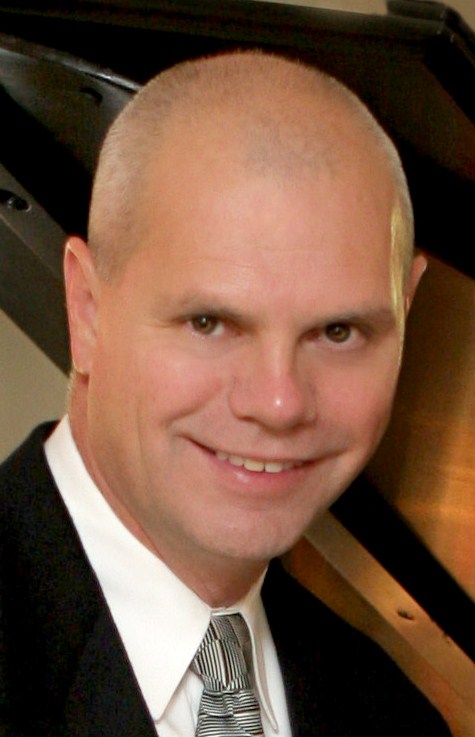 LaWayne Leno, Piano Teacher from Dellwood, MN
LaWayne Leno, Piano Teacher from Dellwood, MN
Yes
Like most Americans, my first voting experience occurred at a very young age and ended in mixed results. The perennially popular proposition, “Do you want ice cream?” always received a unanimous “Yes” but the subtler ballot issue, “Chocolate or vanilla?” often ended in disappointment for me.
This early lesson in democracy taught me two things. One – that you don’t always get what you vote for, and two – but sometimes you do.
As I progressed through school and into adulthood I participated in elections of every sort, and as the scope of the elections became more significant, involving larger issues with greater impacts, I approached each ballot with eager anticipation, especially when the various candidates or issues seemed locked in a virtually even tie. “Maybe my vote will prove the deciding factor,” I thought as I completed my ballot and slid it into the ballot box.
I voted because I felt it was my civic duty, it was my responsibility as a member of a democracy, I had an obligation to make my voice heard, it was the patriotic thing to do. But over the years, as my voting experiences began to accumulate enough for me to put some perspective around them, I discovered that my candidates and issues only seemed to win about fifty-percent of the time, and nearly always by margins of thousands or even millions of votes, and I began to wonder, “Does my vote really matter?”
It is perhaps embedded in human nature to feel that somehow your vote counts when your candidates or your issues win, and conversely, that your vote somehow doesn’t count when they lose. Also, it’s easy to get lost in the sheer magnitude of voting statistics and tallies and to sink into an apathy, wondering how one voice can possibly matter. And so, the question is asked: To vote or not to vote: does it matter?
I posit a resounding YES, voting does matter, regardless of the outcome of any particular election. Even as a child voting for ice cream flavors, I somehow intuitively knew that by voting I was participating in something bigger then myself and my opinions. The concept of voting goes back into the farthest reaches of human existence. The act of voting has elevated us out of barbarism and tribalism, into civilized societies. Voting enables a fair and peaceful coexistence with our fellow human beings while at the same time offering a structure for change as we, and each succeeding generation, navigate our way through society. Voting is what enables us to be masters of our own destiny, participating in the decision making that affects our lives, from the mundane and minuscule to the epic and historic. It allows us to move beyond passively allowing others to make decisions for us. Voting is the action which, throughout history, enabled the creation and continuation of societies ruled by the will of the majority, rather than the whim of the individual.
To not vote is to abrogate our role as social creatures, and to allow lassitude and despair to overtake passion and optimism. Ultimately to not vote is to cede to a disproportionate few control over the lives of many.
And so, in conclusion, I say, YES voting does matter, whether it be for vanilla ice cream or president of the United States. Each and every one of us must vote, not because we feel it is our civic duty, even though it is, and not because someone says it is our responsibility or the patriotic thing to do, even though it is, and not even because we want to make our voice heard, even though we should.
Voting matters for the simple fact that the act of casting a ballot is an affirmation of our role as civilized humans living in fair, honest, open societies. To cast a ballot is to honor the structures and processes that have held democracies together since their first inception, while simultaneously ensuring their continuation for future generations and future societies.
Vote with enthusiasm, even for those causes you know to be futile – especially for the futile causes – for in doing so you are defining yourself as a vitally essential participant in human history. In the end, voting is one of the greatest gifts we can bestow on future generations, for it is a gift of hope.
~~~
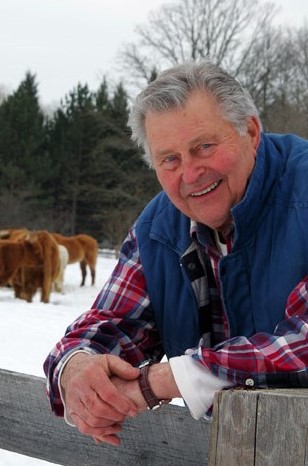 Jerry Mevissen, Retired/Farmer/Author from Nimrod, MN
Jerry Mevissen, Retired/Farmer/Author from Nimrod, MN
No
First, let’s clarify terms. Voting refers to elections – national, state, and local. And does it matter to whom? I premise that to a large segment of the electorate, it unequivocally does NOT matter.
The easy answer is, of course it SHOULD matter. Democracy depends on citizen participation, and we exercise that at the ballot box. But if it matters, why do only 60% of eligible voters vote? Polls indicate a variety of reasons – registration problems, getting to the polls, voting privileges declined, don’t know enough about the issues or candidates. And voter apathy. Clearly, most of these reasons could be eliminated. Apathy can’t. Voters perceive their vote doesn’t matter.
Minnesota has the largest voter turnout percentage of all fifty states. How many of your friends and neighbors didn’t vote because they couldn’t get to the polls? Or had trouble with voter registration? Or were convicted felons? Quite likely none. Why didn’t they vote? Voter apathy. They thought their vote doesn’t matter.
According to a PRRI (the non-profit and non-partisan Public Religion Research Institute) report “American Democracy in Crisis,” 60% of those polled said too many uninformed voters is a problem. And 68% said too few people voting is a problem. Why are they not informed? Does it matter to them? Why do they not vote? Does it not matter to them?
The Center for American Progress, an independent non-partisan policy institute, published “Increasing Voter Participation,” in which they recommended six actions, — streamlining voter registration, early voting, accessible polling stations, restoring voting rights for felons, increased civic lessons in school, and investing in voter engagement issues. Except for the six million felons whose rights would be restored, there’s little evidence that supports a projected increase. And how many of the felons would vote? These recommendations do not address voter apathy. Potential voters feel they’re too busy or too uninformed or the system is rigged. Their vote doesn’t matter.
As to not knowing issues, certainly campaigns are not designed around issues. And if a voter knows her party’s stance on an issue, how well does she know the opposition’s stance? John Stuart Mill famously said, “He who knows only his side of the case knows very little.” Why don’t voters insist on knowing both candidates’ position? Because it doesn’t matter to them.
And how well do voters know the candidates? I’m reminded of the back page of my ballot listing a dozen judgeships for Supreme Court, Court of Appeals, and District Court, none of whom I’ve heard of and most of which run unopposed. Do I vote randomly? Does everyone else? Is winning a matter of chance or choice? Does it matter?
In America, voting is a privilege, an option. It is not a requirement. We can chastise non-voters, blame them for unpopular outcomes, simplify the voting process, but we can’t force them to vote.
As an analogy, think of free will, an inalienable right. If we exercise it, are we doomed? If we don’t exercise it, are we doomed? Does it make a difference? Does it matter?
The American Library Association states, “A democracy presupposes an informed electorate.” Do you consider our electorate informed? I don’t. Too many citizens vote like their parents voted. They don’t fact check claims made about candidates. Campaigns are financed by political action committees with an agenda. Misstatements spew forth which support that agenda but do not inform the electorate. Should we pay attention to what the opposing PAC has to say? Would it make a difference? Would it matter?
Clearly, a vote by a citizen who is familiar with issues, knows candidates, and has the best interests of the nation at heart is worth it. Is it worth more than the uninformed voter who votes straight party line, who thinks a woman’s place is in the house, but not the Senate, and certainly not the White House? No. Each vote is equal.
So, “To vote or not to vote. Is it worth it?” To many of us, the answer is yes. But that’s not a universal yes. To 40% of the population, if action (or inaction) speaks louder than words, the answer is tragically NO.
~~~
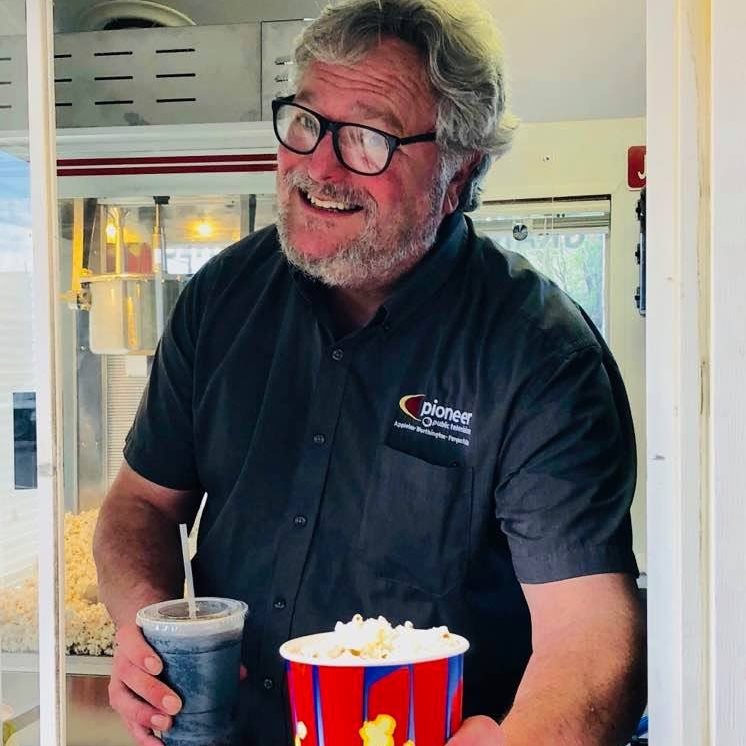 Patrick Moore, Network Weaver and Cultural Animator from Montevideo, MN
Patrick Moore, Network Weaver and Cultural Animator from Montevideo, MN
Yes
I will never forget conversations with my parents and siblings around the family dinner table as I approached voting age for the first time.
I am the 11th child in a family of 12. I grew up in a family full of ideas and opinions. Our parents told us about the need to “know where we came from”. We learned the history of the Irish struggle against English rule. We heard stories about our grandfather’s involvement in ward politics in Chicago. My dad wrote letters to the editor. We were challenged to be critical thinkers and engaged citizens.
As a young boy, my mother insisted that I help her with the door to door distribution of campaign literature for local politicians.
The top of our family car was mounted with a “Elect Jim Swanson” sign — much to my embarrassment — when my mother picked me up from school.
Mary Quinn Moore was a committed volunteer for local politicians and she made sure that her children were engaged in the basic building blocks of party politics:
Stuffing Envelopes
Going door to door
Turning friends and neighbors out for election day.
As a typical teen, I came to loathe my mother’s activism.
One day, as a know-it-all High School Senior, doing dishes with her in our kitchen I said:
“Mom — it is all for naught.
Big money has taken over.
The permanent war economy rules our civilization.
Our Democracy is a sham”
She turned, looked me straight in the eye and said:
“Patrick — you must understand that society is always getting better.
It used to be legal in this country to own slaves.
When I was born in 1917, women could not vote.
Look at how much progress has been made since then!
Live in Hope. Die in Despair.”
I knew she was right.
Ever since that day, I have decided to live in Hope.
I have volunteered to work with others in grassroots organizations that seek to make the world a better place and I have voted in every election, I have brought my children with me to the voting booth and yes, I insisted that they help me distribute campaign literature.
Now there are those who might say — all well and good for you Mr. Moore — for sure, the election system works for those with privilege, for those who grew up with two parents, for those with white skin, for those lucky enough to have parents who insisted on family meals every night.
And they would be right. I am privileged and our democracy is imperfect and the system is rigged — I get that.
But try as I might, I still can’t think of a better way to make decisions than to base them around a one person, one vote system and to constantly work toward creating an informed and inspired electorate.
My comeback to the voting doesn’t matter crowd is simply to ask — what is the alternative but to continue to work and try to improve inequality and injustice in our society by voting!?
Perhaps it is because I live in Minnesota, but I have seen several free and fair elections over the years that led to surprising results by underdogs who took on the system.
There was the time that Kyle Jones — an avowed Star Trek fan, ran for Mayor in Montevideo and won, despite efforts by the power elite in the community to defeat him.
And of course there was the huge upset by Paul Wellstone over Senator Rudy Boschwitz and by Jesse Ventura’s third party candidacy for Minnesota Governor.
Our world is better, because millions of women all over the world are exercising their right to vote.
Who alive isn’t inspired by the story of Malala’s work to create a world where all girls can learn and lead?
I tell you, we are just beginning to see the beneficial impact of Universal women’s suffrage.
I believe that there is an inexorable arc towards the good as more and more people are given the chance to vote and use the power that previous generations have won for them.
I have come to see that humanity moves forward in fits and starts.
There is progress.
There is backlash.
But then, there is progress again.
Voting.
Showing Up.
Putting your shoulder to the wheel with others to make the change.
No matter how futile it seems at the time.
Is the legacy that our forebearers have given us.
So Yes! Voting matters
Now, more than ever.
~~~
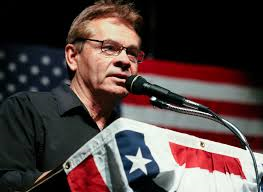 Marsh Muirhead, Writer/Pilot/Semi-Retired Dentist from Bemidji, MN
Marsh Muirhead, Writer/Pilot/Semi-Retired Dentist from Bemidji, MN
Yes!
“To Vote or Not to Vote: Does It Matter?” Are you kidding? This is debatable? Few questions posed in the twenty-seven year history of this event offer such a clear choice in the affirmative.
If you believe in democracy, in our constitution, in our long struggle to extend life, liberty, and the pursuit of happiness to all; if you believe in our continuing efforts to this very day to reaffirm those rights, to push back against those who limit those rights; if you believe our government exercises its duties and responsibilities through consensus, not through power or privilege, then the answer is a thunderous “Yes!”
Voting is not just a right, it’s a responsibility. Win or lose, it is the act that is important. Your vote is an expression of values both personal and civic; it is a look in the mirror—for our country, for oneself. The vote clarifies and reveals. The outcome of an election is much more than who or what issue has won the day. It tallies who voted, why, how and by what margin. It reveals the conscience and concerns of your village, the state, our nation.
And what did the vote reveal in the last presidential election? It revealed that many hard-working middle class people were angry and frustrated. Blue areas went red, it has been said, because the Democratic party had shifted too far away from working people’s day to day concerns about a living wage and healthcare to the boutique issues of the spotted owl and wind farms. The vote revealed that Hillary won almost 2.9 million votes more than Donald. The election revealed that some, maybe thousands of votes tipped towards the Republican slate because of interference with the truth: rumors, lies and propaganda. The vote revealed what needs to change, who we actually are, that gerrymandering and the Electoral College work against the will of the people, that we need to be on guard to keep our elections secure and fight the good and necessary fight against voter suppression.
If voting doesn’t matter, why such monumental efforts to prevent the unemployed, the working poor, people of color from voting? Why conspicuous gerrymandering? Why the scandals in Kansas, Georgia, Florida – racist, well-funded, obvious in intent, by people in positions in power who wanted so badly to make voting difficult for others? Is it because those they know the terrible power of the vote in a true democracy?
Our votes are not always cast by our better angels, but by our lessor selves, out of fear, by being misinformed, by our own self-interest, propelled by the encouragement of manipulators, lobbyists, monopolists and authoritarians, the good old boys in the back room who try to trick you into giving them, the top one per-cent, the rest of your money. But later, in retrospect, we realize we have taken the wrong path, have been misdirected. We understand that we need to turn back, make a correction. And we vote again, and again, and again.
The common argument in this discussion is that your vote may actually make the difference. In close elections, often on a local level, your vote, one among a few hundred, truly matters. In the last election, my candidate for Minnesota’s Distinct 5A seat, John Persell, won by 8 votes over Matt Bliss. Bliss asked for a recount. Persell won that by 11 votes. If I and a dozen close friends whom I could name had not voted, Persell would have lost.
We vote as members of a family – ham, turkey, or tofu for Thanksgiving; as board members; as a high school class; as Minnesotans; as Americans. Yes or no, more or less, this or that, stop or go in our efforts to support the health, wealth, freedom and safety of our one human family. Voting is an expression of values, of character.
To not vote is to be part of the problem, to contribute to the problems about which you complain.
If you think your vote really doesn’t matter, or if you are too lazy to get to the polls, you are not part of our democracy, yours is the silence of the lambs.
Recall Edmund Burke who said, “The only thing necessary for the triumph of evil is for good men to do nothing.”
How sweet it is that tonight, in the democracy of this auditorium, you will all – man and women – exercise the very topic of this year’s debate: You will vote and pick a winner.
~~~
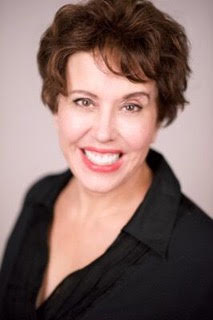 Caroline Sposto, Freelance Creative from Memphis, TN
Caroline Sposto, Freelance Creative from Memphis, TN
Yes
If I were to order lunch for a group of people, and had to choose between Sandwiches or Pizza, I’d take a vote. From the smallest, most casual decisions, to the largest, most significant ones, that’s how most Americans like to roll. We believe in democracy, through and through. There might be a better way to run things, but if there is, I haven’t seen it.
I’ve been voting for many years. Not always. Not in every election. Not on every issue. But, in general, I’ve been voting . . . and . . . . voting . . . and voting.
On more than one occasion, I have gotten my preferred candidate, and have later been horribly disappointed in them, but I don’t regret having voted.
On more than one occasion, the electoral college has rendered my presidential vote null and void, but I don’t regret having voted.
More than once, I have voted only to later hear of concerns about human error, gerrymandering, voter obstruction, foreign interference, and all-out fraud, but I don’t regret having voted.
The very fact that people are try to prevent others from voting, buy votes, mess with elections, proves that every vote means something — and that includes yours.
Do I think ONE vote will sway an election? No. I think I have better odds at winning the lottery, but that’s immaterial.
Every vote may be less than a drop in a bucket, but enough drops can turn the tide.
I’m not immune to feelings of futility. I have no romantic notions about elections. I’m well aware that large corporate concerns often undermine the public interest, and that many outcomes are more about donors than voters.
Granted, there are problems. Big problems. We deserve a better class of politicians than we often get. Yet, I believe that is all the more reason to vote.
Problems aren’t an excuse to make sloppy citizenship the standard. Quite to the contrary.
Our founding fathers were wise men, and political science was the advancing science in their day. We’ve come a long way . . . for better . . . and for for worse. Abused though it is, we still have the bones an excellent system . . . one that will work if we fix it.
And we have to fix it because we’re living in urgent times. Do you want to have a say about what happens in matters that concern you and your children and their children?
Voting is your voice in legislation, and if you opt not to have a voice, or representation, you and your family may be subject to laws that are not in your best interest.
Staying away from the polls in a state of disaffected self righteousness is a luxury you can’t afford. You think disillusionment absolves you of responsibility? Tell that to the people who risked everything, lost everything, lost their lives, for the right to cast that ballot.
And don’t play the “things can’t get any worse” card — because believe me, they can. If you’re doubtful, read up on a little history. This isn’t the right time to say, “I need to do less.”
We have all heard the saying, “80 percent of success is showing up.” Well that’s particularly true when it comes to midterms and local elections. Because those are direct elections. Who wins? Those who have the most show up!
Have you ever heard of a young woman named Alexandra Ocasio-Cortez? Odds are you have, and odds are you didn’t know who she was a year or so ago when she was bartender. She didn’t win an election by persuading her opponents to change their minds. She won it by expanding the electorate. By getting more people out to vote . . . specifically, to vote for her.
Did you happen to notice the women in white at the last State of the Union address? They didn’t just spring up like mushrooms after a rainstorm. They were voted in!
But even if your candidate isn’t voted in, or the ballot initiative you want doesn’t pass, your vote is still an expression of support for who and what you believe in.
Voting shows those in power we’re paying attention. Getting informed and casting an intelligent ballot will make you feel better about your citizenship. Seeing your friends and neighbors at the polls will make you feel better about your community.
Respect yourself and your future enough to stand up and be counted. Vote.
~~~
Ron Stewart, IT Manager from Coon Rapids, MN
Yes
I turned 18 in the middle of a presidential campaign. George H.W. Bush was running against Michael Dukakis for the privilege of sitting in the oval office for the next four years. Lots of other things were also happening, though most had less potential importance for the nation: I was graduating high school and preparing to move a bit over three hours from home to attend college.
When the election came around, I was fully immersed in calculus and microeconomics coursework at the U of M. In my off hours I spent time playing intramural basketball or cheering the Gophers through another sub-par football season. I was a long way from home and the local polling place. There were many reasons to let the election pass without my participation.
Yet I was determined to vote and followed the steps necessary to obtain & cast an absentee ballot. In the subsequent three decades my determination to exercise my franchise hasn’t waned despite many arguments against the idea that my vote mattered: unworthy candidates, inconvenience, or projections indicating my preferred candidates would win or lose by far more than my one vote.
In the grand scale, it may be that my one vote never changed the results of any election. Yet in no case can I ever say my vote didn’t matter. To say my vote only mattered when “my side won” or when “my vote decided things” is to diminish everyone else’s voice.
There are many reasons I believe this. The first of these reasons I see by looking back. My father, grandfather, father-in-law and multiple other family members have served this country going back at least to the Civil War. Many have given their lives so that we might have the freedom to participate in this great experiment, where “we the people” lead ourselves. While the freedom we have absolutely includes the right to not vote, the ballot box seems a good place to honor the sacrifice of those who gave their lives to secure our freedom.
I also look back to see the suffrage movements across the globe, here most clearly resulting in passage of the 15th and 19th Amendments to our Constitution. Voting mattered so much that people made sacrifices to ensure protection of voting rights was enshrined in our Constitution, righting wrongs that had been allowed to linger too long. For them, too, voting in and of itself mattered significantly. Nobody fought for the right to only vote for specific candidates or parties; people fought for the right to vote, period.
In the present, I see voting still matters. In an era of clear divides, expressing one’s values, opinions and politics carries increasing cultural risk. Voting is a way to speak one’s mind without having to worry about launching a Twitter storm (unless, of course, you broadcast your vote.) Whenever I submit my ballot, I have personally spoken my piece as loudly as if I had shouted my choice from the top of the Washington Monument. It matters not that other voices are yelling as well. We can all express our opinions and values simultaneously and with integrity.
While we’re growing apart, voting also helps bring a bit of unity to our local, state and national communities. It is an act in which we can all choose to participate, the red “I voted” stickers signaling a pride of freedom and civic involvement. It is one of the few things we can do which directly affects those who will lead us in the years ahead, and we do it together. Unifying acts are important.
Finally, I see that voting will continue to matter in our future. My three daughters are growing into citizens of this country, and as they live independently, they will encounter challenges that require political solutions or leadership. The pace of change will require deft leadership, and my children will need to speak into those leaders. The most effective way is through voting. We cannot often sit with a senator and chat; we can vote and have a part in deciding who that senator will be.
In truth, voting matters – has mattered and will continue to matter – because it is the thing that keeps our voices active and heard, even if not as much as we’d like.
When voting stops mattering to enough of us, voting will stop – because nobody likes it when we discount the importance of elections more than the tyrannical, who will absolutely love it when to us voting stops mattering.
~~~
